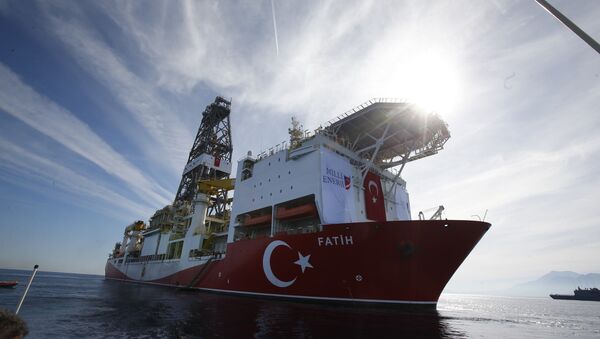This was the second vessel sent by Turkey to explore gas fields off the northeast coast of Cyprus, which it sees as its continental shelf. The first Turkish drillship, Fatih, anchored west of Cyprus in May, prompting the latter to issue warrants for the Turkish crew.
"This second planned drilling [by Turkey], within two months from the commencement of the ongoing illegal drilling operations in the western part of Cyprus’ EEZ, constitutes an escalation of Turkey’s continued violations of the sovereign rights of the Republic of Cyprus under the UN Convention on the Law of the Sea as well as customary International Law and constitutes a serious violation of the sovereignty of the Republic of Cyprus", the statement said.
According to Nicosia, Turkey continues "to blatantly violate international law" and disregards calls from the European Union and the international community to cease its "illegal activities" in the area.
"Ankara ought to realise that the only way to deal with the problems she herself creates, is through an intensive and decisive dialogue that will lead us to a solution on the basis of the relevant UN Resolutions and the principles upon which the European Union is founded. A solution that will, amongst others, address the challenges we currently face as a result of the unacceptable military occupation by Turkey", the statement continued.
Cyprus said that it was determined to continue defending its legal rights and to intensify its efforts "at a legal, political and diplomatic level". It recalled the decisions of the Council of the European Union made in June 2019, condemning Turkey’s actions in the Eastern Mediterranean.
The row between the Republic of Cyprus and Turkey escalated in 2011 when the first gas deposits were discovered off the coast of the island. Ankara rejects the EEZ claims of Nicosia. The nations have been at odds over the status of the unrecognised Turkish Republic of Northern Cyprus.


